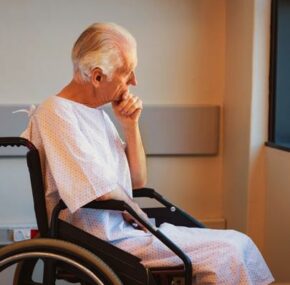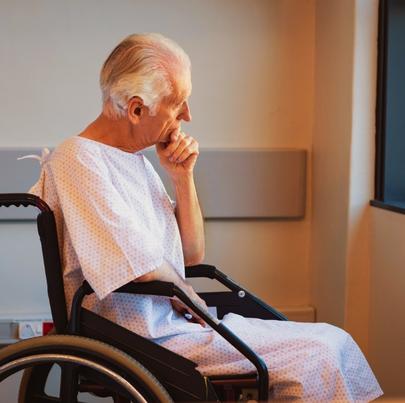Private-equity companies are acquiring nursing homes across the country and creating high mortality rates for facility residents.

Private Equity-Owned Nursing Homes
Over the last decade, nearly 2,000 nursing homes have been acquired by private equity companies. In 2018, private equity investments in nursing homes were $100 billion, an alarming jump from just $5 million in 2000. As private-equity acquisitions rise, acquired nursing home facilities are experiencing an alarming rate of resident mortality rates, especially in healthy residents who don’t have serious or life-threatening health conditions.
Although a nursing home neglect lawyer commonly sees resident injuries, private-equity facilities are linked to higher mortality rates. In a new study from the National Bureau of Economic Research, private-equity nursing homes are raising serious concerns about resident safety. The study, “Does Private Equity Investment in Healthcare Benefit Patients? Evidence From Nursing Homes,” examined the quality of care in 18,485 nursing home facilities across the county, of which 1,674 were acquired by private-equity firms. Findings showed that private-equity ownership led to a 10% increase in mortality rates, as well as an 11% increase in billing for Medicare-funded residents. On average, private equity-owned nursing homes bill $14,800 per resident stay, while other nursing homes bill $13,500 per stay. Research shows over 20,000 Medicare patient deaths of residents in private-equity nursing homes.
While long-term care facilities fall under federal funding by Medicare and Medicaid, most privately-owned nursing homes operate on a for-profit basis. Typically, private-equity firms take on debt to purchase a company, then put that debt on the newly acquired company’s accounting books, creating a financial advantage for profits and losses. Because large amounts of money are involved, private-equity firms face enormous pressures to extract profits quickly from nursing homes they acquire. The result is often an adverse effect on the quality of care for facility residents.
The leading causes of mortality for residents in private-equity nursing homes include:
- Lack of mobility
- Poor hygiene
- Malnutrition and dehydration
- Missed pain medications
- Antipsychotic medications
- Bedsores and staph infections
Although all of the above conditions contribute to declining health, nursing home neglect lawyers see these problems more in residents with serious underlying health conditions. In private-equity-owned facilities, these conditions are found in healthy residents without serious health conditions. Research shows nursing homes acquired by private-equity firms have a decline in the number of healthcare staff hours spent per patient, as well as an increase in antipsychotic medications given regularly to residents.
Safety in Illinois Nursing Homes
Illinois nursing homes are licensed and regulated by the Illinois Department of Public Health (IDPH), as well as the U.S. Department of Health and Human Services and the Centers for Medicare and Medicaid Services (CMS). Under federal and state regulations, all nursing homes and long-term care facilities that receive Medicare and/or Medicaid funding are required to uphold certain standards of care. Regulations require nursing homes to ensure that each resident receives the highest standard of care for medical treatments, medications, physical and mental health, and personal needs.
IDPH is responsible for overseeing nursing home standard of care. Each year, IDPH conducts approximately 1,300 on-site facility inspections to evaluate quality of care and investigate complaints of possible violations for facility policies and procedures, facility finances, facility staff members and caregivers, and resident care plans. IDPH investigates over 6,000 complaints every year by alleged victims or family members of alleged victims for nursing home neglect and abuse.
Unfortunately, Illinois nursing homes have a high rating for resident injuries caused by improper care. Chicago nursing home neglect lawyers often refer to a long list of facilities that were cited for sub-standard resident care. In 2019, there were over 100 Illinois nursing homes cited for major violations. Although IDPH can only impose state fines of $10,000 per violation, federal authorities can impose fines ranging from $50 up to $10,000 per violation per day.
Under the Illinois Nursing Home Care Act, residents vulnerable to abuse, neglect, and exploitation have legal protections under the U.S. Constitution and state and federal laws. These rights include:
- Right to accept or refuse treatment – Mentally stable residents can participate in their own medical care and refuse treatments not ordered by their personal doctor.
- Right to choose a personal physician – Residents can choose their own personal doctor based on provisions of their health insurance.
- Right to have private visitors – Residents can receive private visitors during reasonable business hours unless visits are prohibited for medical reasons.
- Right to receive private communications – Residents may not be denied private mail, emails, or phone calls from family members, friends, and associates.
- Right to manage personal finances – Residents must be given access to their personal finances to prevent financial exploitation.
If a resident’s rights are denied, a nursing home neglect lawyer can file a lawsuit against the facility for violation of the Illinois Nursing Home Care Act.







